SECURITIZED CITIZENS
Canadian Muslims Experiences of Race Relations and Identity Formation Post-9/11
Securitized Citizens examines how the post-9/11 era has shaped the lives of young Canadian Muslims.
In this work based on fifty in-depth interviews conducted with young adult Muslim Canadians in Vancouver and Toronto Baljit Nagra addresses three important sociological questions. First, how are national belonging and exclusion experienced by young Muslim adults in post-9/11 Canada? Second, how do young Canadian Muslims reflect on and reconsider their cultural, religious, and national identities in light of the pervasive discourse about the Muslim other? Third, what do their experiences tell us about contemporary meanings of Canadian citizenship? In documenting well-educated young Muslims encounters with state surveillance practices and daily interactions with mainstream Canadian society in the years following 9/11, Nagra asks what these experiences show us about national belonging and racialized processes in our society. In a broader sense, the findings shed light on current issues and understandings with regard to citizenship, multiculturalism, race relations, and identity formation.
BALJIT NAGRA is an assistant professor in the Department of Criminology at the University of Ottawa.
Baljit Nagra
Securitized Citizens
Canadian Muslims Experiences of Race Relations and Identity Formation Post-9/11
University of Toronto Press
Toronto Buffalo London
University of Toronto Press 2017
Toronto Buffalo London
www.utorontopress.com
Printed in the U.S.A.
ISBN 978-1-4426-3197-7 (cloth)ISBN 978-1-4426-2866-3 (paper)
 Printed on acid-free, 100% post-consumer recycled paper with vegetable-based inks.
Printed on acid-free, 100% post-consumer recycled paper with vegetable-based inks.
Library and Archives Canada Cataloguing in Publication
Nagra, Baljit, 1980, author
Securitized citizens : Canadian Muslims experience of race relations and identity formation post-9/11 / Baljit Nagra.
Includes bibliographical references and index.
ISBN 978-1-4426-3197-7 (cloth). ISBN 978-1-4426-2866-3 (paper)
1. MuslimsCanadaEthnic identity. 2. MuslimsCanadaInterviews. 3. Belonging (Social psychology)Canada. 4. CitizenshipCanada. 5. CanadaRace relations. I. Title.
FC106.M9N34 2017305.6'970971C2017-904417-6
University of Toronto Press acknowledges the financial assistance to its publishing program of the Canada Council for the Arts and the Ontario Arts Council, an agency of the Government of Ontario.

This book is dedicated to all those who have suffered at the hands of racism, and who have had the courage to speak of these painful experiences and mount strategies of resistance.
Acknowledgments
When I started the journey of writing this book, I did not realize how challenging and rewarding it would be. I need to thank numerous people for their support during the years I have spent working on this book. I have benefited from having the most amazing academic mentors that have helped shape me into the academic that I am today. These mentors include Dr. Ito Peng, Dr. Paula Maurrutto, Dr. Anna Korteweg, Dr. John Myles, Dr. Tania Das Gupta, and Dr. Patti Tamara Lenard. Their incredible mentorship and guidance enabled me to complete this passion project of mine. I would also like to thank the brilliant academics whose work has and continues to inspire me. These include but are not limited to Sherene Razack, Jasmin Zine, Sunera Thobani, Himani Bannerji, Stuart Hall, Nandita Sharma, Edward Said, Homi Bhabha, Ghassan Hage, Mary Waters, and Yen Le Espiritu. I also am thankful to the Social Sciences Humanities Research Council of Canada and the Faculty of Social Sciences at the University of Ottawa for funding that helped with the completion and publication of this book. This book would not have been possible without the guidance and support of Douglas Hildebrand, the editor from the University of Toronto Press. I am also thankful for the thoughtful and insightful suggestions of the anonymous peer reviewers. Their feedback allowed me to strengthen my analysis and better the book manuscript. I am also deeply indebted to Elizabeth Thompson who helped with the editing and proofreading of this manuscript. I also am grateful for the support of my colleagues at the Department of Criminology at the University of Ottawa.
I will always be deeply indebted to the many young Canadian Muslims I interviewed for my book. I would not have been able to write this book without their participation and willingness to share their experiences with me. The kindness and courage these young Canadian Muslims display in a world that is increasingly hostile to them is something that has inspired me and something that I will never forget. I particularly have to thank my friends Ether Al Adan and Sharifa Khan who helped me with the interviewee recruitment procedures for my study.
On a personal note, I would like to thank my parents (Sarabjit Nagra and Jaswinder Nagra). From my mother I have learned kindness, patience, dignity, and empathy. From my dad I have learned how to be brave and to be vocal about issues that are important to me. Thank you Mom and Dad for encouraging me to follow my dreams. I am also thankful for the support of my siblings (Ravi, Daljit, Kulveer), nieces and nephews (Khushi, Eshawn, Sohan, Preity, and Jiya), as well as my wonderful extended family members and many sweet friends for their unwavering support while I worked on this book. Finally, I would like to thank my late grandmother Swaran Kaur Gill, who was a great role model for me and who paved the way for my family to come to Canada. She is someone that I will always dearly love and miss.
SECURITIZED CITIZENS
Canadian Muslims Experiences of Race Relations and Identity Formation Post-9/11
Introduction
In 1903, W.E.B. Du Bois uttered a prophetic and now famous statement when he said that the problem of the twentieth century is the problem of the color line. Approximately eighty years later and in another country, I understood what he meant. I was born in Victoria, British Columbia, the daughter of Sikh Indian immigrants, and I grew up there during the 1980s and 1990s. It is a city with a predominantly white British background (), and as a racialized minority, I remember experiences of racism throughout my childhood. Once, when my family and I were walking through our neighbourhood, we were interrupted by a car full of young white men who hurled racial insults at us and yelled, Get out of our country. Another time, a simple trip to the gas station with my father was disrupted by a stranger screaming at us to leave Canada. My parents never explained why such incidents occurred. But I soon realized that we were not always thought of as belonging to Canada and that I might be reminded of this at any time. As a result, I questioned my Canadian citizenship. I was ashamed of my Indian identity, and I avoided wearing Indian clothes or speaking Punjabi in public to conceal my Indian identity as much as possible. As the years passed, these incidents of overt discrimination began to disappear and became more of an exception than a rule. While I still faced instances of subtle discrimination, it became less acceptable for people to hurl racial insults in public.

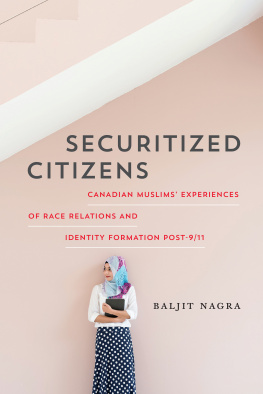

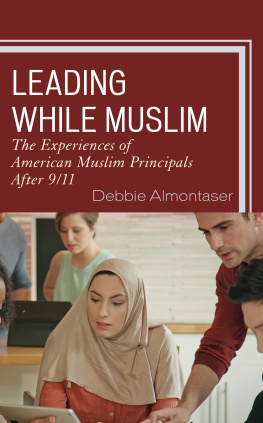
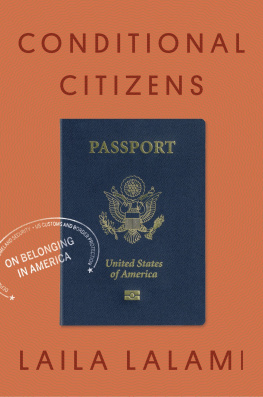
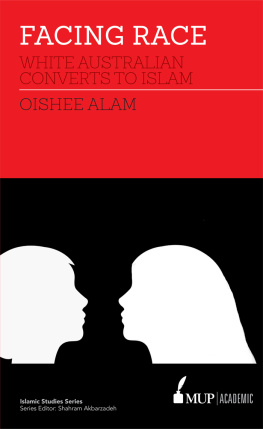

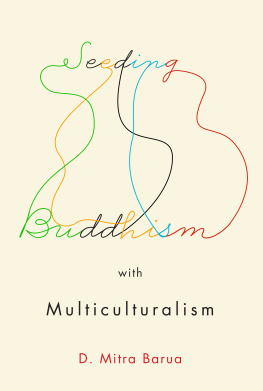
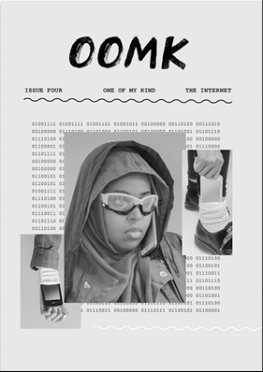
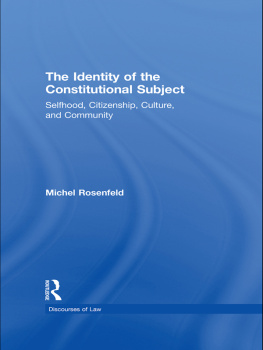
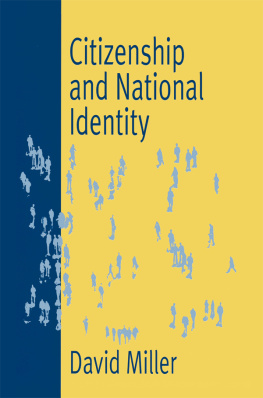

 Printed on acid-free, 100% post-consumer recycled paper with vegetable-based inks.
Printed on acid-free, 100% post-consumer recycled paper with vegetable-based inks.